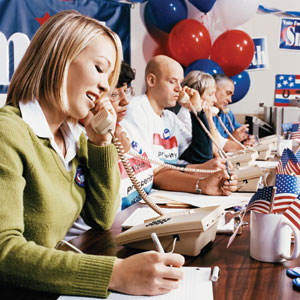
What we learned from the last general election:
When US citizens enter the voting booth on November 6 to cast their ballots for the next President of the United States, a complex nexus of factors is likely to impact who they vote for as well as how they arrive at their decision. Right at the top of this list is emotion. Early voting-behavior scholars viewed emotions as biasing factors that need to be eradicated because they lead voters astray from the issues and individuals of importance, but more recent work has steadily tipped the balance from emotions as irrational biases to emotions as fundamental determinants of political attitudes and actions (for reviews, see Brader, Marcus, & Miller, 2011; Groenendyk, 2011; Isbell, Ottati, & Burns, 2006). In fact, this year marks the 30th anniversary of the first publication to consider seriously the important role of affect in determining candidate evaluations (Abelson, Kinder, Peters, & Fiske, 1982). This work demonstrates that citizens’ emotional experiences in response to candidates are a powerful and significant predictor of how they evaluate candidates, even after controlling for citizens’ assessments of the candidates along numerous trait dimensions (e.g., honest, weak).